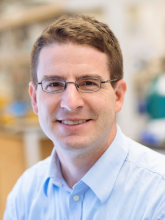CEE Seminar (ZOOM): The End of the Pipe - Controlling and Monitoring Lead in Tap Water

Walter E. Browne Professor
Department of Energy, Environmental and Chemical Engineering
Washington University in St. Louis
Abstract: The legacy of lead-containing materials used for water supply poses challenges to tap water quality. In contrast to drinking water contaminants that have their origins in the source water and can be removed at a treatment plant, the source of lead in drinking water is the pipe that connects a home to the water main and the plumbing within the home. Concentrations of lead in tap water are governed by the chemical reactions between the water in the pipe and the scale of solid phases that develops on the inner surface of the pipe. Perturbations of the water chemistry have resulted in high-profile crises of lead in drinking water (e.g., Washington, D.C., and Flint, Michigan). However, adjustment of the water chemistry is also a lever that can be used to minimize lead release to drinking water. The effectiveness of orthophosphate as a corrosion inhibitor and its impact on the composition and structure of pipe scales was evaluated in a series of bench-scale experiments with lead pipes that evaluated the responses of lead pipes to a change in disinfectant from free chlorine to chloramine. More recent work on lead interactions with point-of-use filters will also be presented with respect to using these filters as monitoring tools for lead in tap water and to the ability of lead phosphate particles to transport through filters at particularly water chemistry conditions.
Bio: Daniel Giammar is the Walter E. Browne Professor of Environmental Engineering in the Department of Energy, Environmental and Chemical Engineering at Washington University in St. Louis. Giammar's research focuses on chemical reactions that affect the fate and transport of heavy metals, radionuclides, and other inorganic constituents in natural and engineered aquatic systems. His recent work has investigated the removal of arsenic and chromium from drinking water, control of the corrosion of lead pipes, geologic carbon sequestration, and biogeochemical processes for remediation of uranium-contaminated sites. His research has been sponsored by the National Science Foundation, Department of Energy and Water Research Foundation. Giammar is currently an associate editor of Environmental Science & Technology. Giammar completed his B.S. at Carnegie Mellon University, M.S. and Ph.D. at Caltech, and postdoctoral training at Princeton University before joining Washington University in St. Louis in 2002. He is a registered professional engineer in the State of Missouri.
Share
Upcoming Events
-
MSE 298 Seminar: ML-Driven Ab Initio Enhanced Sampling: from Catalytic Reactions to Quantum Defect Formation
-
CEE Seminar: Wildfire Engineering: Integrating Models with Data to Provide Active- and Pre-Fire Solutions
-
CEE Fall Mixer 2024
-
MSE 298 Seminar: Additive Manufacturing as a Unique Platform for Fabrication of (Meta-)Materials with Complex Topologies and Designer Microstructures
-
MSE 298 Seminar: Extreme Environment Materials Enabling Propulsion and Power Generation: The Design and Durability of Materials Systems for Turbine Engines
